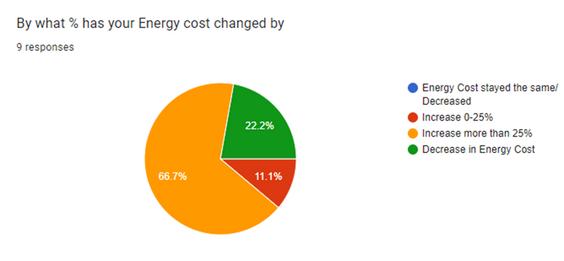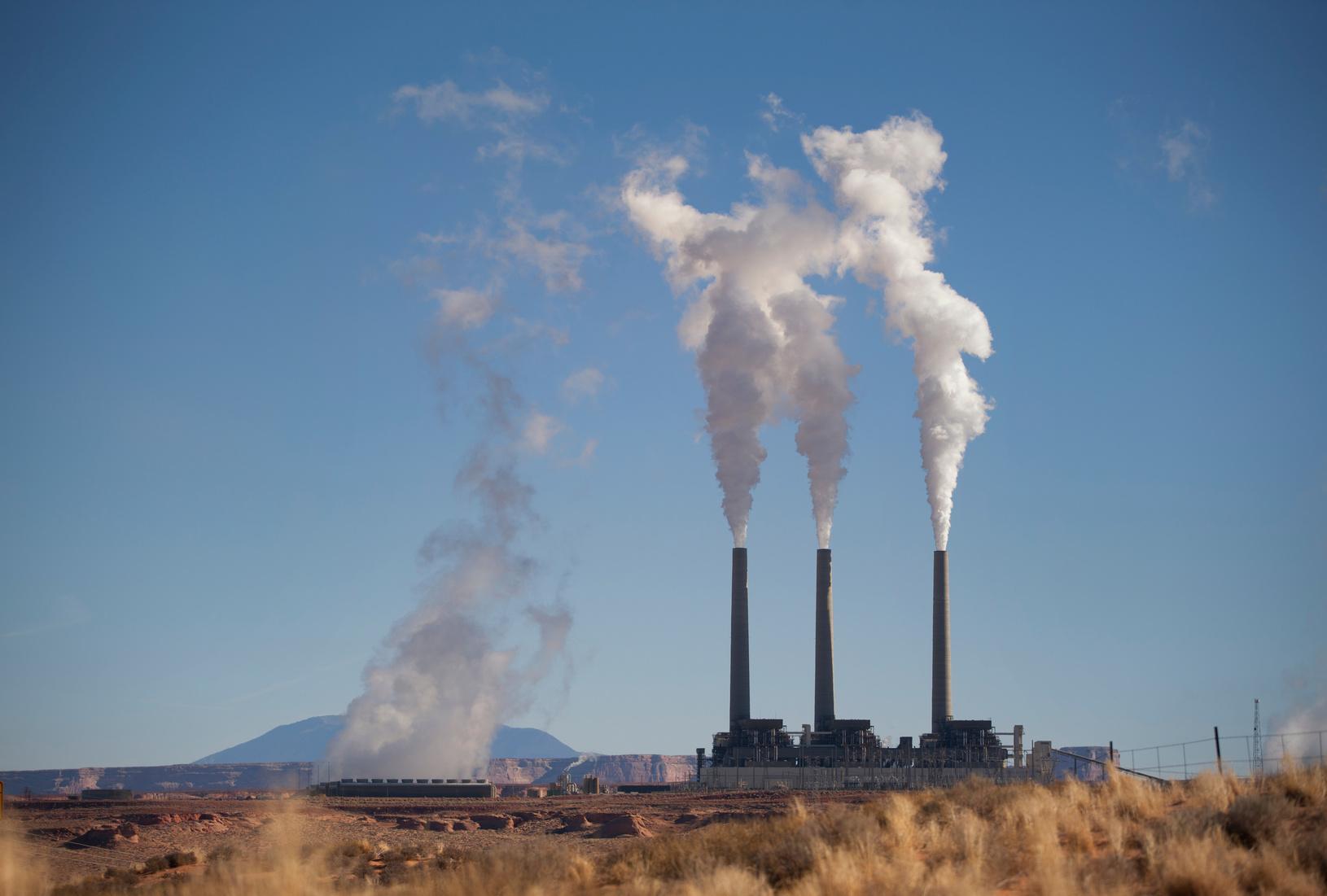
10 minute read
HOW HAS THE RECENT INCREASE IN ENERGY COST AFFECTED SOCIETY, AND WHAT ARE THE POTENTIAL SOLUTIONS SURRROUNDING THIS?
WRITTEN BY MIKO K
On the 24th of February 2022, the world witnessed the horrific invasion of Ukraine, which has escalated global tensions with Russia, one of the biggest suppliers in Gas; as a result, the gas supply running through Nord Stream 1 has been limited, until it was eventually cut of in late August, with Gazprom stating that “Supplies would remain halted indefinitely” (1), reducing the available supply. With any basic level of Economics, we understand when supply decreases, but demand stays the same, the price needs to increase, in order to not cause a shortage However, the issue stands that energy has become a need in today's society, as opposed to a want. This decrease has had a substantial effect on Europe's energy market. Due to this, the UK has witnessed a rise in the cost of energy, which has vastly restricted the everyday users' lives, from not turning the lights on as much, to limiting the time that the heating is on Over the past year our attitude to energy has changed experientially and won’t ever be like it was before. Of that reason, I have chosen to evaluate what the future of energy holds for us, as the current situation has had notable impacts on our Society, Economy, and a Nation as a whole As a result, I will evaluate how energy can be affordable again, whether we will use Nuclear or Renewables and what the main solution to the current energy crisis is.
What are the effects of the energy crisis?
The current energy crisis has had tremendous effects on the lives of those in the UK, one way of evaluating the full impacts is by considering the changes in people's lives In one survey (2) over 30% of people reported never using the lights at home throughout the energy crisis and all those questioned reported using the lights less, this is despite being questioned in Winter Additionally, over 40% of people reported driving less (Figure 1 5) which provokes the idea that people have made vast changes to their way of lives as a result Moreover, almost 90% of people reported using the heating less, which powerfully illustrates the issues and repercussions that the energy crisis has caused, which further emphasises that an adequate solution needs to be found as soon as possible Moreover, we understand the devastating reverberations of the energy crisis that is taking place, which provokes the urgency in finding a solution that is beneficial to our finances and the environment
Since the invasion of Ukraine on the 24 February 2022, the cost of energy has significantly increased, with more than two thirds of people reporting an increase in energy cost higher than 25% (2 – Figure 1.3). On top of this, many people are “struggling to afford rising energy bills” (3) and use it for basic uses, such as heating their homes. This emphasises the significant impacts that energy unaffordability can have, which shows us devastating effects of the energy crisis


One potential way of lowering the cost of energy on the consumer, and henceforth reducing the effects of the energy crisis is to decrease the indirect tax on energy companies Currently, the indirect tax rate stands at, and has been “increased to 35%” (4), this cost is relayed on the consumer, as firms want to maximise their profit If the tax rate could be changed to 20%, energy firms would have a larger profit margin
Therefore, if the government decreased the indirect tax on the energy firms, then energy firms will be able to, and feel pressured to decrease the overall cost of energy, which could perhaps make energy more affordable again, which would be an adequate solution to the energy crisis in itself, without the need for nuclear power.
Lastly, to increase our supply, and reduce the cost of fossil fuels we can explore new places of finding fuel, until we can become more reliant on Nuclear and renewables
Examples of this could be Alaska, or Antarctica Antarctica is home to “36 billion Barrels of oil and gas ” (5), which is sitting vacant, as Antarctica is a protected under the Antarctic treaty, with mining not being currently legally possible. However, the protocol will next be reviewed in 2048, henceforth, if this were to be reviewed sooner, the possibility of mining could take place As a result, the 36 billion barrels of oil could very easily increase our fossil fuel supply, to power our extensive solution to the 2022/2023 energy crisis, if it could take place soon enough, which would as a result reduce the repercussions on the energy crisis on consumers
How will the reduction in Fossil Fuels affect the cost and availability of Energy, and will renewables be the future?
Based on our current energy usage, Fossil Fuels provide great prosperity, unlike any other type of fuel, this is due to their cost, efficiency and availability, over the past century, human civilisations have designed their lives to centre around fossil fuels, whether it be heating our homes, air travel or just driving a car When considering other energy solutions, we can evidently see that no other energy resource comes even close to Fossil Fuels, we can identify that Nuclear would work, however “constructing a nuclear power station now takes something like 10-15 years ” (6), therefore, fossil fuels could act as a shortterm solution to our energy needs for the approximately the next 50 years, until nuclear can pave the way forward Switching from fossil fuels to nuclear immediately would cause a deficiency in our energy supply, bringing civilisation to a standstill.
Realistically, renewables won’t be able to solely power human civilisation, this is because their size-energy ratio is very big, which means that lots of space is needed to power our energy needs
Correspondingly, as we are unable to store energy, renewables can become considerably less reliable, as “its surprisingly hard to store energy ” (7) this is due to the lack of control that is had over provision of renewables, as they occur naturally If we were able to provide a storage system for energy, then renewables would face a potential future, as we could store large amounts of energy However, renewable energy is currently unreliable, and requires other energy sources to produce the majority of energy used
Is Nuclear our Primary Solution?
Since its discovery in 1938, nuclear energy has portrayed a prosperous future, since the 1980’s, the world has seen a dramatic increase in the number of nuclear power stations, in fact, “in the 1980s, 218 power reactors started up, an average of one every 17 days” (8), which provokes the idea that if we could replicate this increase in Nuclear Power in today's society, then it could have drastic effects on energy supply. Subsequently, it proposes the idea that Nuclear Fission is already working, and has the potential to expand, like it did in the 1980’s, which could drastically alter our usage of energy in following years These power stations use Nuclear Fission, which is the splitting of a partial, which releases lots of energy They are mostly run on Uranium and Plutonium, which are particularly difficult to dispose of, due to their long half-life's However, “Nuclear energy ' s land footprint is small” (9) and “ a nuclear facility has a small area footprint, requiring about 1 3 square miles per 1000 megawatts” (10), which increases its efficiency This presents one of the benefits of nuclear energy, as it uses less land, transpiring the idea the Nuclear has the potential to become our primary solution. As a result, whilst Nuclear may not be renewable, it is highlight efficient, and doesn't release any CO2 which can make it similar to, if not better than typical renewables Nuclear Fusion, however, emphasises even greater prosperity, this is because it forms Helium, from Hydrogen, both of which are readily available, and aren't dangerous, unlike Uranium
Case Study – The Sizewell Plant in rural Suffolk

Situated in Sizewell, a small remote fishing village in remote Suffolk, the Sizewell plant is responsible for providing a large amount of the UK’s Energy The site consists of 2 plants, occupying 245 acres, Sizewell A was planned and managed by the CEGB (Central Electricity Generating Board), at a time where the CEGB was nationalised, with construction beginning in 1961, costing £65 million Sizewell A “ended 40 years of safe, compliant electricity generation on 31 December 2006” (11), this alludes to the fact that nuclear plants have the potential to supply energy for long amounts of time, in a safe fashion, emphasising that Nuclear may be an adequate solution As well as this, “ a typical day’s generation saw the station supply more than 10 million KWH of electricity” (11) emphasising the potential that Nuclear has, as it provokes the idea that Nuclear has the ability to provide lots of Energy to consumers The decommissioning had a budget of £1 2 billion, defueling was completed in 2014, and final site clearance is planned for 2088-2098 However, on a worse note, Nuclear can have damaging effects on the environment, in 2007, a worker noted a water leak, this hadn’t raised any alarms, despite the water dropping more than a foot down, “ more than 40 000 gallons of radioactive water leaked into the open when a 15ft crack appeared in a pipe leading to a cooling pond” (12), some of which is believed to have entered the North Sea This highlights that negative effects on the environment that can take place due to the use of nuclear power, presenting the viewpoint that Nuclear may not be the finest solution to our energy needs Moreover, the HM Nuclear Installation Inspectorate’s report of the incident reported that the pond could have drained out before the next plant inspection, and if the exposed fuel had caught fire, then an airborne off-site release of radiation would have taken place This could have been a catastrophic event, highlighting the dangers that Nuclear Fission presents, if slight issues occur, suggesting that the safer, Nuclear Fusion should be used, if and when it is logistically possible on Earth
Overall, we can infer that Nuclear suggests great potential, whilst it isn’t renewable, it doesn't release CO2, Nuclear power plants are one of the few potential future sources of energy that allow humans to have full control over the amount of power they produce, as well as when this takes place With other non-CO2 emitting fuels, they can suddenly fail to produce energy sufficient to our needs, as nature is out of our control, for example, if the wind stops blowing, then Wind Turbines will fail to produce significant energy, resulting in a lack of power for consumers For this reason, I feel as though the potential that nuclear raises are undeniably exquisite Whilst it is easy to say that Nuclear Fusion would be the flawless solution, it is currently unable to run efficiently on earth Research for Fusion will cost billions of pounds, due to the high level of human capital and resources needed to do this
Whilst we can agree that Fission is also good, we need to consider the time and money needed to build successful plants
When looking at the Hinkley Point plant in Summerset we can evidently see this. In 2010, the British Government announced Hinkley Point Plant C, 2 years later a site licence was granted, but somehow it took until March 2017 for construction to begin, with the target commission date being June 2027, that’s 17 years needed to build 1 power plant This makes it ludicrous to believe that the UK has the potential to significantly increase the amount of energy produced with Nuclear, if new plants were announced today, then it would take until 2039 for them to be commissioned. As a result, it would be significantly difficult to power the UK’s energy with Nuclear, as the UK is hoping for a swift transition to non-CO2 emitting fuels, and the time needed could pose potential complications
Additionally, the investment needed to build a successful Fission plant is significant, and due to the ideology that the UK is currently facing one of the biggest energy crises it has ever faced, with it being described as “bigger than the pandemic” (13), which provokes the idea that Nuclear might not be an adequate solution as of yet This due to the fact that we may fail to raise significant funds, so we may end up continuing to use fossil fuels for the foreseeable future, and the idea of powering the majority of the UK’s power by nuclear will be out of the window. Henceforth, Nuclear raises significant potential, however, this potential is to remote Proportionately, it is portrayed that it will be a primary solution in the years to come, but not to our ongoing energy crisis

For that reason, it is evident that Nuclear Fusion will be our primary long-term solution, as it is a compact, safe, and reliable source of energy, that doesn't release any dangerous side products, nevertheless, it is not an adequate solution to our current Energy Crisis due to the time required to commission it The energy crisis has had life changing effects on many, this is seen when considering the fact in one survey, almost 90% of claimed to use the heating less, with another 30% claiming to never use the lights at home. This powerfully conveys the importance ion finding a long-lasting solution to this evergrowing problem Moreover, it is evident that an immediate reduction in the use of other fossil fuels would dramatically reduce supply, which would only exaggerate the effects of the ongoing energy crisis Henceforth, we can understand that a combination of mostly Fossil Fuels and Renewables will be the solution our current energy crisis due to their attainability and financial benefit. Whilst Nuclear Fusion raises significant potential, it is not an immediate solution, in fact, Scientists are struggling to get it working on earth, which is why it shouldn’t be considered a valid solution to our ongoing energy crisis Additionally, whilst the use of Nuclear Fission can be practical, it takes over 15 years to complete the reactor from start to finish. This timescale is to be expected when building a building of such scale, which stores materials as dangerous as Uranium and Plutonium
As a result, it is undoubtably evident that Nuclear isn’t a solution to the 2022/2023 energy crisis as it would be too time consuming, however, both forms, especially Nuclear Fusion can be both beneficial to the Consumers Finances, as well as the environment. As a result, an increase in renewables and use of fossil fuels for the time being could pave the way for our energy usage for the next 20 years, until we see an increase in Nuclear Fission reactors This increase in supply should in turn reduce the damaging effects of the cost of energy Additionally, the increase in renewables may have some benefits to the environment, though they aren't as significant as many would like, from there, we can use Nuclear Fission until Nuclear Fusion can become an adequate solution for our energy usage, having terrific effects on our finances, and the environment alike










